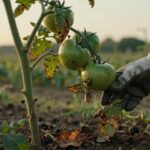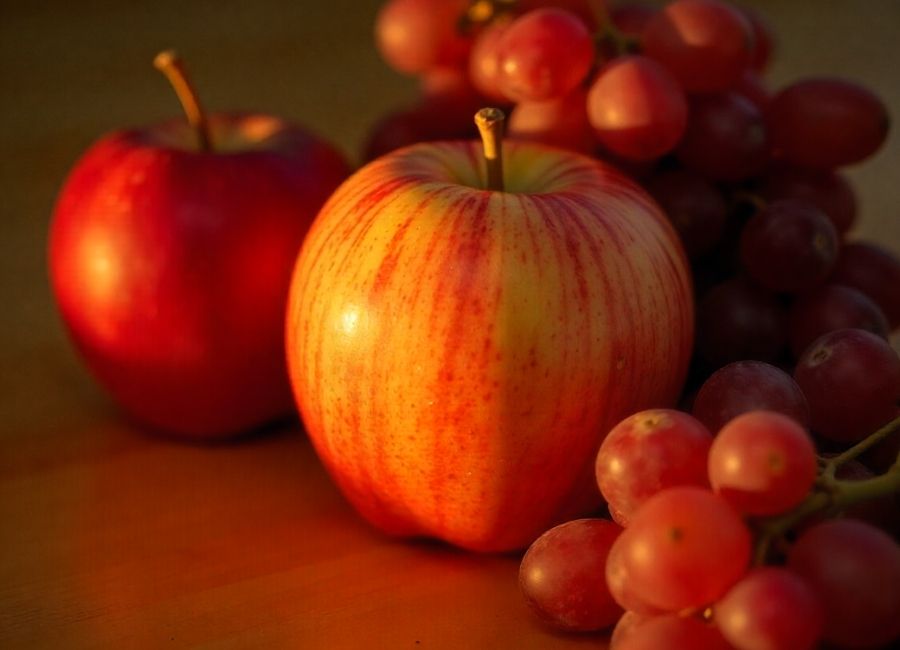When it comes to storing fruits, many of us simply place everything in the refrigerator or countertop without much thought. However, understanding how fruits interact can make a significant difference in how long they stay fresh and flavorful. A common question many people ask is, “Can you keep apples near grapes?” While they may seem harmless companions, their proximity can influence each other’s shelf life due to natural processes.
This blog explores whether apples and grapes can cohabit harmoniously, why ethylene plays a pivotal role, and tips for storing fruits the right way.
Understanding Fruit Interactions and Ethylene Gas
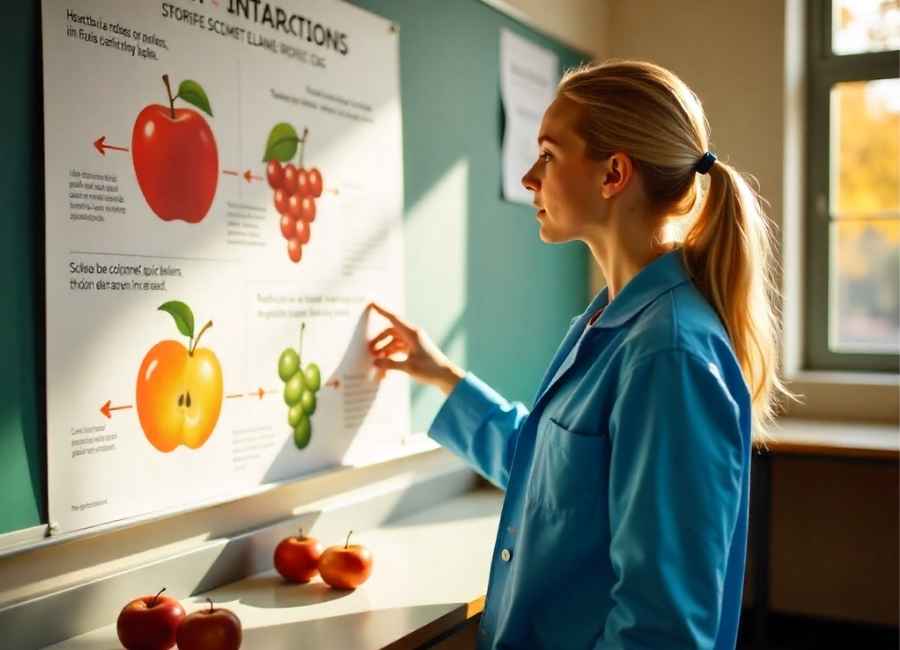
To answer the question about storing apples and grapes together, it’s essential to first understand ethylene gas.
What is Ethylene Gas?
Ethylene is a natural plant hormone that many fruits produce during the ripening process. It is often called the “ripening agent” because it can accelerate the aging process of fruits and vegetables. Some fruits, known as “ethylene producers,” release higher amounts of this gas, while others, called “ethylene sensitive,” are easily affected by it.
Apples as Ethylene Producers
Apples are a prime example of a high ethylene-producing fruit. They release significant amounts of ethylene gas, which can make them a great companion to ripen unripe bananas or avocados faster. However, this same characteristic can also cause nearby fruits to spoil more quickly.
Grapes and Their Sensitivity
Grapes, on the other hand, are relatively neutral when it comes to ethylene. They produce only minimal amounts of ethylene compared to apples, and they are moderately sensitive to ethylene exposure. This means they can be affected by ethylene-producing fruits nearby, potentially hastening their spoilage.
Can Apples and Grapes Coexist?
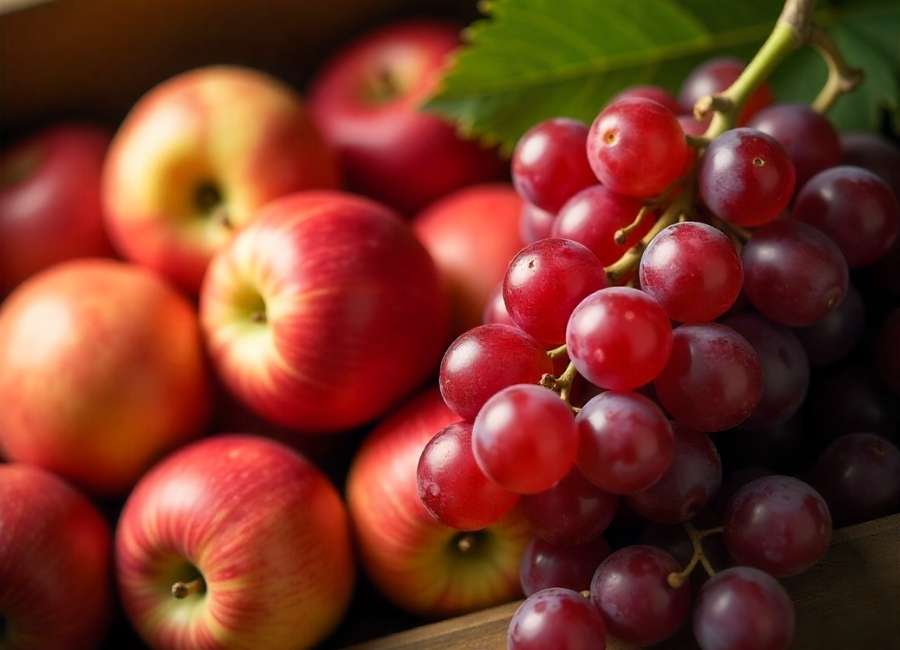
The short answer is that it’s not ideal to store apples and grapes together for the long term. Here’s why:
- Ripening Acceleration
Apples’ high production of ethylene can accelerate the ripening of grapes, leading to quicker spoilage. The grapes might become soft and lose their vibrant flavor sooner than expected.
- Microclimate Impact
Storing apples and grapes together can also create a microenvironment where excess moisture or gas buildup further affects their freshness.
- Cross-Contamination of Odors
Apples have a distinct aroma, and keeping them near fragrant or neutral fruits like grapes may lead to flavor transfer, altering the taste of the grapes.
While it’s not catastrophic to keep apples and grapes together for short periods, separating them is highly recommended for optimal freshness.
Tips for Proper Fruit Storage
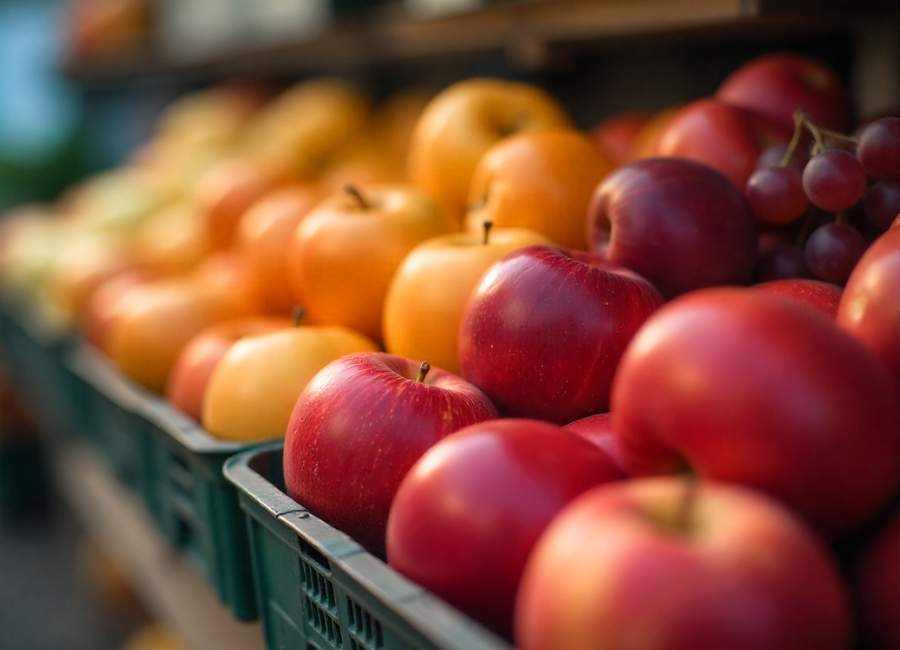
Each type of fruit requires specific storage conditions to maximize freshness. Here are some general tips to keep in mind when storing apples, grapes, and other common produce items.
Storage Tips for Apples
- Ideal Temperature
Store apples in a cool place, such as the refrigerator, for extended freshness. A crisper drawer is the perfect spot as it maintains a consistent low temperature with controlled humidity.
- Separate from Ethylene-Sensitive Produce
Keep apples away from ethylene-sensitive fruits like berries, leafy greens, or citrus to prevent premature spoilage.
- Use Perforated Bags
Store apples in perforated or breathable plastic bags to allow airflow while controlling moisture.
Storage Tips for Grapes
- Rinse Just Before Eating
Grapes should only be washed right before consumption to prevent excess moisture from promoting mold growth during storage.
- Refrigerate Quickly
Grapes thrive in cool and dry conditions. Store them in their original ventilated bag or a breathable container in the refrigerator.
- Avoid Stacking
Stacking grapes in heaps can cause the lower layers to bruise. Spread them out to avoid damage.
Keeping Fruits Organized
- Categorize by Ethylene Production
Group high ethylene producers (like apples, bananas, and avocados) separately from ethylene-sensitive produce (like grapes, carrots, and leafy greens).
- Use Separate Drawers or Containers
Utilize separate compartments or containers for fruits to reduce the impact of ethylene transfer and prevent cross-contamination.
- Monitor Regularly
Check your fruits periodically to remove any items that are overripe or starting to spoil. These can emit even higher levels of ethylene and affect nearby produce.
Create a Fruit Combination Cheat Sheet
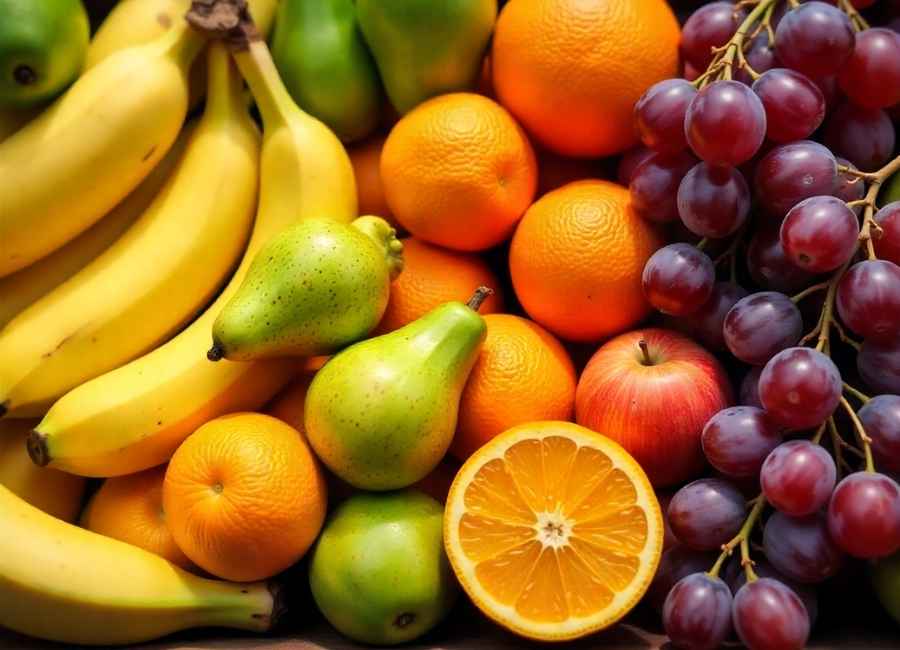
Here’s a quick reference to help you decide which fruits can live together happily and which ones need their space.
High Ethylene Producers:
- Apples
- Bananas
- Avocados
- Pears
- Peaches
Ethylene Sensitive:
- Grapes
- Berries
- Citrus
- Leafy Greens
By keeping these groupings in mind, you’ll be better equipped to store your fruits correctly and extend their shelf life.
Why Proper Fruit Storage Matters
Proper storage of fruits does more than just reduce spoilage. It saves you money, ensures you have fresh and flavorful options at all times, and reduces food waste. According to the USDA, food waste is one of the largest contributors to landfill waste, and improper storage of fresh produce plays a significant role in this.
Understanding the science behind storing fruits like apples and grapes can help improve your habits and positively impact the environment.
Make Your Fresh Produce Last Longer
When it comes to storing apples near grapes, the general rule of thumb is to keep them apart for longer freshness and better taste. While short-term storage might not harm your produce, separating your ethylene producers from ethylene-sensitive fruits is a small yet impactful change you can make today.
Want more tips on keeping your fruits and veggies fresh? Sign up for our newsletter and get delicious, practical tricks delivered straight to your inbox.


